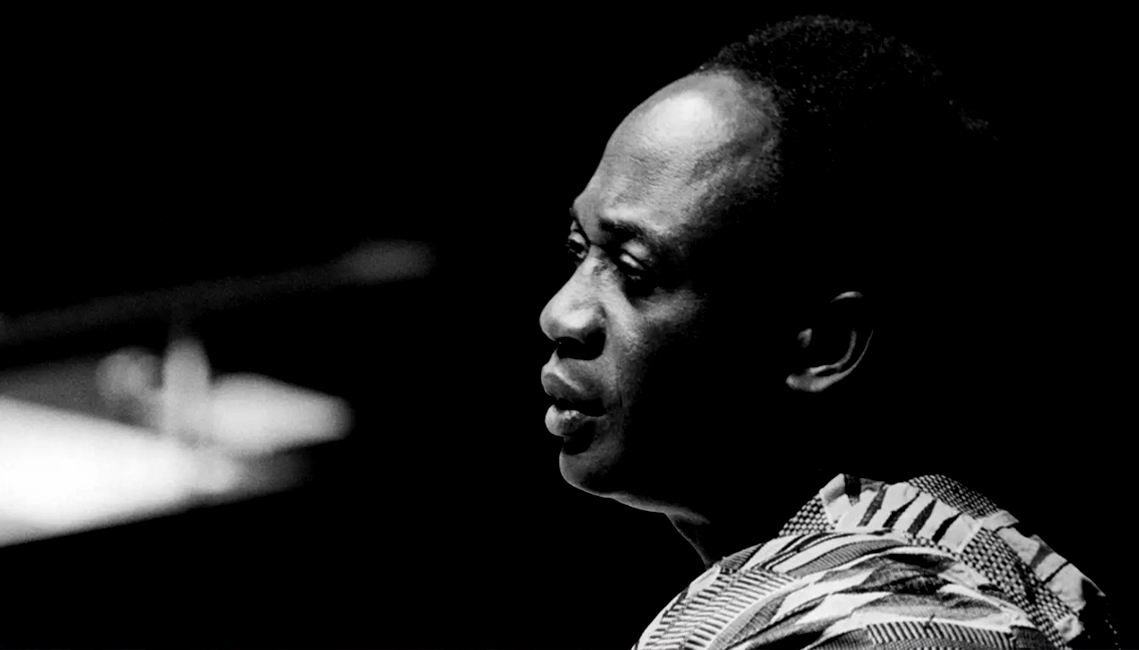The Republic Of Ghana’s Foreign Policy
DIPLOMATIC BRIEFING DOCUMENT
THE REPUBLIC OF GHANA’S FOREIGN POLICY:
PAN-AFRICANISM, NON-ALIGNMENT, AND GLOBAL DIPLOMACY IN THE 21ST CENTURY
1. INTRODUCTION
Since gaining independence in 1957 under the visionary leadership of Dr. Osagyefo Kwame Nkrumah, Ghana has maintained a principled foreign policy anchored in the doctrine of "Friends of All, Enemy of None." This approach has not only guided Ghana’s international relations but has also positioned it as a leader in Pan-African diplomacy, global peacekeeping, and economic cooperation.
The present document seeks to provide an extensive diplomatic briefing on Ghana’s foreign policy evolution—rooted in Nkrumah’s ideological foundation—and to examine how it remains relevant in addressing contemporary geopolitical challenges, particularly in the context of Africa’s political and economic transformation. It also introduces the "Nouvelle Déclaration de Non-Alignement Stratégique" (New Declaration of Strategic Non-Alignment) as a modern diplomatic doctrine to safeguard African sovereignty amid global power shifts.
2. THE FOUNDATION OF GHANA’S FOREIGN POLICY UNDER NKRUMAH (1960-1966)
A. Non-Alignment and Global Neutrality
Ghana played a pioneering role in the Non-Aligned Movement (NAM), refusing to be drawn into Cold War rivalries between the Western bloc (USA and allies) and the Eastern bloc (Soviet Union and China).
In 1961, Ghana was instrumental in the Belgrade Conference, which established the Non-Aligned Movement (NAM). Nkrumah’s United Nations General Assembly Speech (1960) emphasized Africa’s right to self-determination without external influence.
Ghana pursued a balanced approach to international relations, maintaining diplomatic ties with both capitalist and socialist states.

B. Pan-Africanism and African Unity
Nkrumah believed that Ghana’s independence was meaningless unless it was linked to the total liberation of Africa. His efforts led to:
B.1: Hosting the All-African People’s Conference (Accra, 1958)—a pivotal event in Africa’s anti-colonial struggle.
B.2: Championing the Casablanca Group (1961), advocating for a federal African state.
B.3: Establishing the Organization of African Unity (OAU) in 1963, with a vision for a United States of Africa.
B.4: Publishing "Africa Must Unite" (1963)—a seminal work that outlined his vision for *continental integration and sovereignty.
C. Economic Self-Reliance and Industrialization
Nkrumah envisioned an Africa free from economic dependence on former colonial powers:
C.1: He advocated for a Pan-African currency and economic union to counter Western control over African economies.
C.2: Promoted the establishment of a continental industrialization framework to reduce reliance on raw material exports.
C.3: Called for the creation of an African Development Bank (AfDB) to finance infrastructure and economic growth.
D. Support for Liberation Movements and Global Peacekeeping
D.1: Ghana became a diplomatic hub for liberation movements across Africa:
D.2: Provided financial, military, and logistical aid to liberation groups in Algeria, Zimbabwe, Angola, Mozambique, Namibia, and South Africa.
D.3: Championed anti-imperialism at the United Nations (UN), OAU, and NAM forums.
D.4: Sent peacekeeping troops to the Congo (1960) under the UN mission to stabilize post-colonial conflicts.
3. GHANA’S FOREIGN POLICY EVOLUTION POST-NKRUMAH
3.1: Following Nkrumah’s overthrow in 1966, Ghana’s foreign policy gradually shifted towards pragmatic diplomacy and economic engagement with the West. However, several Pan-Africanist ideals remained:
1970s-1990s:
Ghana continued to be a key player in African regional cooperation, engaging with ECOWAS and the African Union (AU).
C.2: Promoted the establishment of a continental industrialization framework to reduce reliance on raw material exports.
2000s-present:
Successive governments prioritized economic diplomacy, peacekeeping, and strategic partnerships with emerging global powers.
3.2: Ghana’s commitment to UN Peacekeeping remains strong, with the country among the top contributors to international missions.
3.3: A major milestone was the 2021 launch of the African Continental Free Trade Area (AfCFTA), headquartered in Accra, which aligns with Nkrumah’s vision for continental economic integration.
4. THE NOUVELLE DÉCLARATION DE NON-ALIGNEMENT STRATÉGIQUE
A. Definition and Objectives
The Nouvelle Déclaration de Non-Alignement Stratégique is a modernized version of the Non-Aligned Movement, adapted to contemporary global challenges. It seeks to:
A.1: Preserve Africa’s sovereign decision-making power without falling into the influence of external superpowers.
A.2: Promote economic self-reliance and technological independence in African states.
A.3: Develop a continental security framework to manage internal conflicts without foreign intervention.
B. Key Diplomatic Pillars
Economic Sovereignty:
Maximize benefits from AfCFTA and establish Pan-African financial institutions to support independent growth.
Strategic Neutrality:
Maintain balanced diplomatic relations with both Western (USA, EU) and Eastern (China, Russia, India) powers without dependency.
Regional Security:
Strengthen the African Standby Force (ASF) and establish an African Defense and Intelligence Alliance (ADIA) to counter terrorism and external interventions.
Technological Autonomy:
Invest in African-led innovations, digital economies, and infrastructure projects to reduce technological reliance on foreign states.
Pan-African Institutional Strengthening:
Revive discussions on an African Union-led foreign policy mechanism to ensure Africa speaks with one diplomatic voice in global affairs.
5. CONCLUSION: THE WAY FORWARD FOR GHANA AND AFRICA
The doctrine of "Friends of All, Enemy of None" remains a guiding principle for Ghana’s global engagements. In an era of shifting global power dynamics, Africa must reclaim control over its economic, political, and security destiny.
Moving forward, Ghana and Africa must:
1. Leverage intra-African trade and industrialization to build sustainable economies.
2. Maintain diplomatic neutrality while asserting African interests on the global stage.
3. Strengthen regional security mechanisms to address African conflicts without external interference.
4. Institutionalize the Nouvelle Déclaration de Non-Alignement Stratégique as a Pan-African diplomatic doctrine to navigate global complexities.
Through these strategic actions, Ghana—and Africa as a whole—can shape a prosperous, sovereign, and politically stable future that aligns with the vision of Nkrumah and other Pan-African forefathers.
This document is elaborated and compiled with full legal responsibility by His Excellency Hajj Dr. Alhussein O. E. Banao (Rtd. General), Senior Deputy Foreign Affairs Minister of San Bernardino Principality, Founder and Executive President of AGIC Global Foundation, and Executive Chairman of AGIC Group
